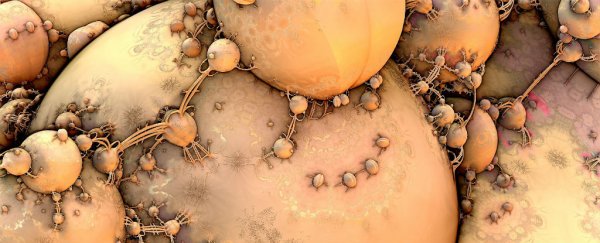Scientists have developed a new compound that's effective at inhibiting the growth of multiple types of cancer models in the lab – slowing as many as a quarter of all known types of cancer.
The molecule, called S63845, works by blocking the protein MCL1, which many different types of cancer cells rely on to grow. And without access to MCL1, the cancer cells die off.
The discovery could help researchers fight blood cancers such as acute myeloid leukemia, lymphoma, and multiple myeloma. Solid tumours – including melanoma and cancers of the lung and breast – could also see new treatments.
"MCL1 is important for many cancers because it is a pro-survival protein that allows the cancerous cells to evade the process of programmed cell death that normally removes cancer cells from the body," says one of the team, Guillaume Lessene from the Walter and Eliza Hall Institute in Australia.
"Extensive studies performed in a variety of cancer models have shown that S63845 potently targets cancer cells dependent on MCL1 for their survival."
Cancerous cells are difficult for the body's immune system to kill, because they can quickly evolve and spread faster than our defences can keep up, and can also evade what's called apoptosis – a form of programmed cell death.
Blasting them with chemotherapy drugs or radiation can be an effective way to combat cancer cells, but these techniques usually take healthy cells along with them, and cause debilitating side effects.
What makes S63845 so promising is that, in addition to cutting off cancer's life support system, it can be given at doses that don't harm normal cells, the team suggests.
The compound is the latest development in a new class of anti-cancer drugs called BH3 mimetics, which target a family of proteins that cancers rely on to sidestep and resist programmed cell death.
"BH3 mimetics inhibit a group of proteins known as the 'pro-survival BCL-2 proteins'," says Lessene. "MCL1 is a member of this protein family, and inhibiting it activates the process of programmed cell death."
It's worth pointing out that research is still at a pre-clinical stage, and the researchers need to run further tests on the compound before turning it into a drug that can be taken safely by human patients. But the early signs are very encouraging.
In fact, the same molecule could be used to stop even more types of cancer in the future.
"This discovery finds new hope for patients," says one of the team, haematologist Andrew Wei, from the Alfred Hospital in Australia. "We consider [S63845] to be a precision drug which can really strike cancer at its core and reduce the defences against cancer survival."
"It's possible that with future research and discoveries that this compound will be amenable and effective against other forms of cancer."
The findings have been published in Nature.

